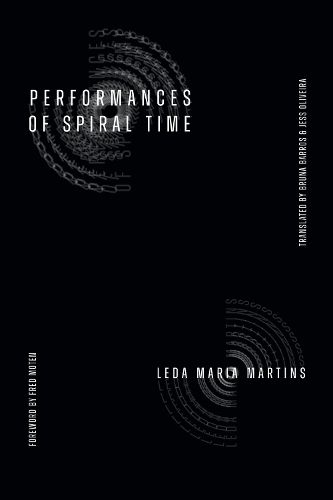Readings Newsletter
Become a Readings Member to make your shopping experience even easier.
Sign in or sign up for free!
You’re not far away from qualifying for FREE standard shipping within Australia
You’ve qualified for FREE standard shipping within Australia
The cart is loading…






In Performances of Spiral Time, famed Afro-Brazilian thinker Leda Maria Martins theorizes forms of African and African diasporic temporality, corporeality, and space that exist apart from and critique Eurocentric notions of linear time. Martins introduces the notion of "spiral time"-curved and recurrent temporalities materialized in Black corporealities in which the body is the place of the inscription of memory and knowledge. She draws on African and African diasporic philosophy as well as the ritual performance and quotidian practices of Afro-Brazilians, arguing that spiral time is most powerfully expressed by the moving body. Embodied performance-whether manifested as capoeira, CandomblE, or theater-and the influence of oral traditions, sacredness, and ancestrality, cause time and memory to curve and return. With this theorization, Martins not only counters the claim to dominance of Western linear time; she provides a polyvalent and foundational account of African and African diasporic thought and ontology.
$9.00 standard shipping within Australia
FREE standard shipping within Australia for orders over $100.00
Express & International shipping calculated at checkout
In Performances of Spiral Time, famed Afro-Brazilian thinker Leda Maria Martins theorizes forms of African and African diasporic temporality, corporeality, and space that exist apart from and critique Eurocentric notions of linear time. Martins introduces the notion of "spiral time"-curved and recurrent temporalities materialized in Black corporealities in which the body is the place of the inscription of memory and knowledge. She draws on African and African diasporic philosophy as well as the ritual performance and quotidian practices of Afro-Brazilians, arguing that spiral time is most powerfully expressed by the moving body. Embodied performance-whether manifested as capoeira, CandomblE, or theater-and the influence of oral traditions, sacredness, and ancestrality, cause time and memory to curve and return. With this theorization, Martins not only counters the claim to dominance of Western linear time; she provides a polyvalent and foundational account of African and African diasporic thought and ontology.